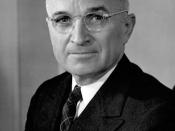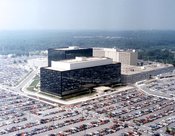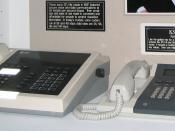Introduction
Imagine yourself as a computer hacker. However, you are legitimately entitled to this role by your own government. Your mission is twofold: protect your nation's communications from the enemy and intercept foreign intelligence by using your code-breaking skills. The latter part of your mission is probably the most exciting; listening to telephone conversations between foreign political and military leaders and hacking encrypted foreign communications are just a couple of the day-to-day routines of your job. What sort of government agency provides for such hush-hush activities? 'The international eavesdropper' . . . such a phrase describes the existence of one of America's, and perhaps the world's, most secretive intelligence organizations - the National Security Agency (NSA).
One may question how an establishment such as the NSA could be created in our democratic America. What sort of Congressional legislation would provide for such a shadowy and unrestricted organization that employs highly skilled computer scientists and engineers to capture foreign, and at times domestic, intelligence by the most enigmatic of means? In fact, no such Congressional legislation exists for NSA's creation.
The American public, the average Joe Smith, does not even know that this agency has been in existence for almost fifty years.
In studying the "why" of American politics, political scientists employ different theories to explain the events and/or changes that occur in our government. In this paper, we will test how well the elite theory characterizes the NSA's creation and gain a better understanding of who really governs in America.
Background
How does such an organization like the NSA derive its existence? On October 24, 1952, President Harry S. Truman created the NSA through an executive and Top Secret memorandum. Prior to 1952, Truman had ordered Secretary of State Dean Acheson and Secretary of Defense Robert A. Lovett to...


